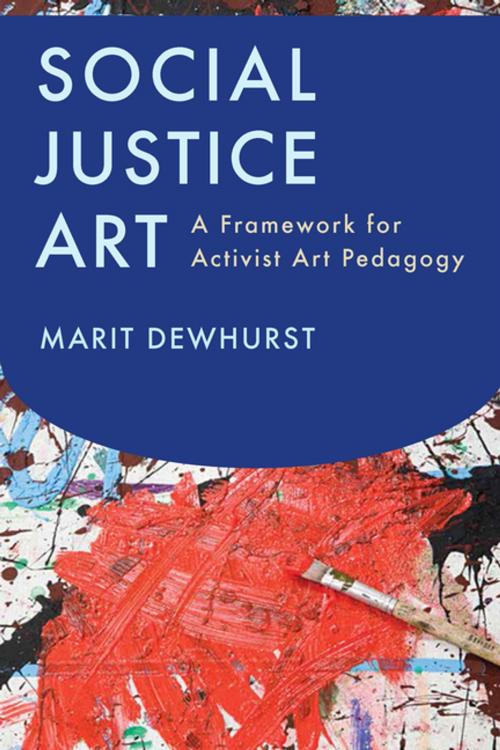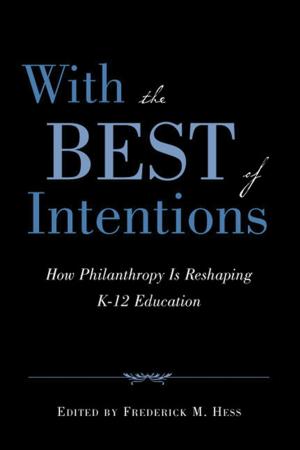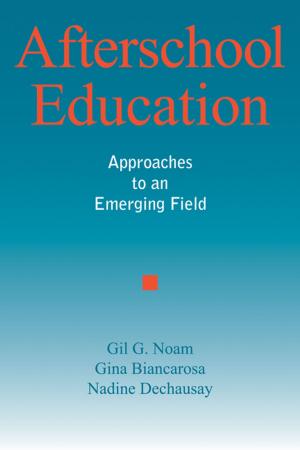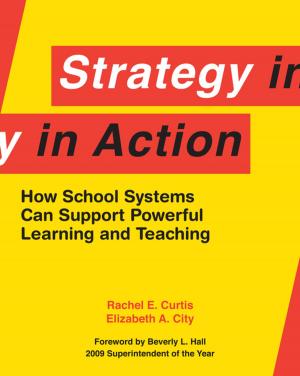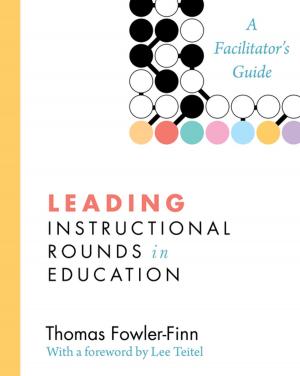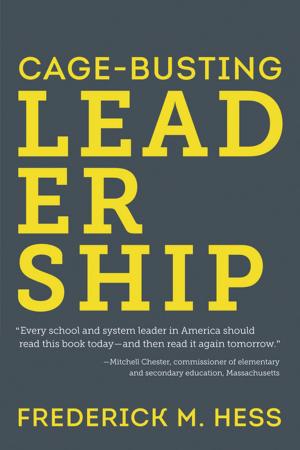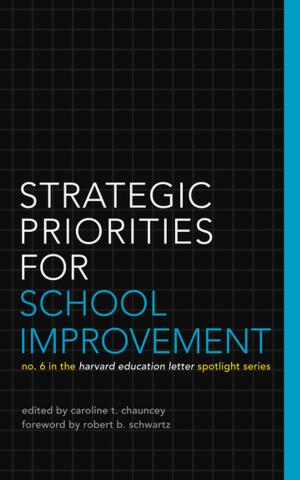Social Justice Art
A Framework for Activist Art Pedagogy
Nonfiction, Reference & Language, Education & Teaching, Administration, Teaching, Teaching Methods| Author: | Marit Dewhurst | ISBN: | 9781612507385 |
| Publisher: | Harvard Education Press | Publication: | November 1, 2014 |
| Imprint: | Harvard Education Press | Language: | English |
| Author: | Marit Dewhurst |
| ISBN: | 9781612507385 |
| Publisher: | Harvard Education Press |
| Publication: | November 1, 2014 |
| Imprint: | Harvard Education Press |
| Language: | English |
In this lively and groundbreaking book, arts educator Marit Dewhurst examines why art is an effective way to engage students in thinking about the role they might play in addressing social injustice.
Based on interviews and observations of sixteen high schoolers participating in an activist arts class at a New York City museum, Dewhurst identifies three learning processes common to the act of creating art that have an impact on social justice: connecting, questioning, and translating. Noting that “one of the challenges of social justice art education has been the difficulty of naming effective strategies that can be used across multiple contexts,” Dewhurst outlines core strategies for an “activist arts pedagogy” and offers concrete suggestions for educators seeking to incorporate activist art projects inside or outside formal school settings.
Social Justice Art seeks to give common language to educators and others who are looking to expand and refine their practices in an emerging field, whether they work in art education, social justice programming, or youth development.
In this lively and groundbreaking book, arts educator Marit Dewhurst examines why art is an effective way to engage students in thinking about the role they might play in addressing social injustice.
Based on interviews and observations of sixteen high schoolers participating in an activist arts class at a New York City museum, Dewhurst identifies three learning processes common to the act of creating art that have an impact on social justice: connecting, questioning, and translating. Noting that “one of the challenges of social justice art education has been the difficulty of naming effective strategies that can be used across multiple contexts,” Dewhurst outlines core strategies for an “activist arts pedagogy” and offers concrete suggestions for educators seeking to incorporate activist art projects inside or outside formal school settings.
Social Justice Art seeks to give common language to educators and others who are looking to expand and refine their practices in an emerging field, whether they work in art education, social justice programming, or youth development.
